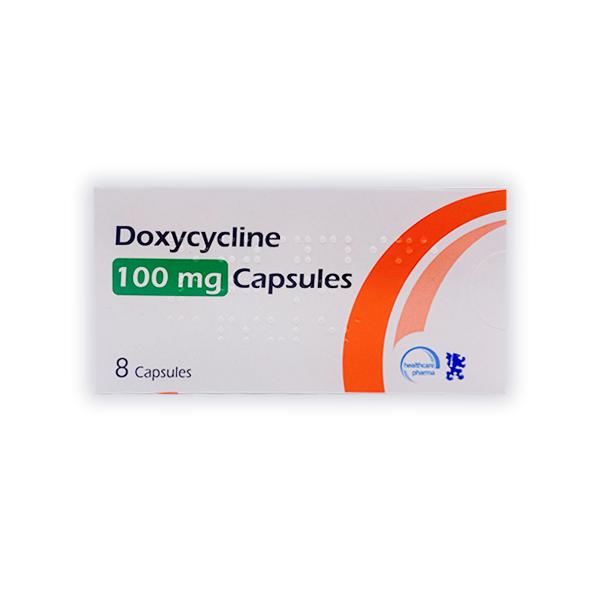Doxycycline Hyclate: What Makes This Formulation Unique?

Doxycycline, a widely used antibiotic, comes in several formulations, with doxycycline hyclate being one of the most common. Patients prescribed doxycycline often wonder what differentiates the hyclate version from other forms and whether it matters for their treatment. This article explores the unique features of doxycycline hyclate, its uses, benefits, and what patients should know before starting this medication.
Understanding Doxycycline Hyclate
Doxycycline hyclate is the hydrochloride salt form of doxycycline. This formulation is designed to enhance the medication’s solubility, making it more readily absorbed in the gastrointestinal tract. Because of its reliable absorption profile, healthcare providers frequently prescribe doxycycline hyclate for various bacterial infections.
Key characteristics of doxycycline hyclate include:
- High oral bioavailability, ensuring effective blood concentration.
- Availability in multiple forms: tablets, capsules, and oral suspension.
- Enhanced stability, making it suitable for long-term storage.
How Does Doxycycline Hyclate Differ from Other Forms?
While doxycycline hyclate and doxycycline monohydrate contain the same active ingredient, there are notable differences:
- Solubility: Doxycycline hyclate is more soluble in water, leading to faster absorption.
- Gastrointestinal Tolerance: Some patients find doxycycline hyclate more irritating to the stomach compared to the monohydrate form.
- Cost: Generic versions of doxycycline hyclate are often less expensive than other formulations.
- Availability: Hyclate formulations are more widely available in pharmacies.
Understanding these differences can help patients and healthcare providers select the most suitable option based on individual needs and preferences.
Medical Uses of Doxycycline Hyclate
Doxycycline hyclate is a versatile medication used to treat a broad range of bacterial infections. Common indications include:
- Respiratory Tract Infections: Such as bronchitis, pneumonia, and sinus infections.
- Sexually Transmitted Infections (STIs): Including chlamydia and certain forms of gonorrhea.
- Tick-Borne Diseases: Lyme disease, Rocky Mountain spotted fever, and ehrlichiosis.
- Malaria Prevention: Frequently prescribed for travelers to endemic regions.
- Skin Conditions: Effective in treating acne and rosacea.
- Dental and Periodontal Infections: Used in cases where bacterial involvement is suspected.
- Eye Infections: Certain bacterial infections affecting the eye and surrounding tissues.
Administration and Dosage Considerations
To ensure the effectiveness of Doxycycline hyclate, proper administration is crucial. Patients should follow these guidelines:
- Take the medication at the same time each day for consistent blood levels.
- Swallow tablets or capsules with a full glass of water to prevent throat irritation.
- Avoid lying down for at least 30 minutes after taking the dose to reduce the risk of esophageal discomfort.
- If gastrointestinal discomfort occurs, taking the medication with a small snack (excluding dairy products) may help.
- Complete the entire prescribed course, even if symptoms improve early.
Doxycycline Hyclate in Travel and Global Health
Beyond routine medical use, doxycycline hyclate plays an essential role in global health initiatives and travel medicine. Its stability and effectiveness make it a preferred choice for:
- Malaria Prophylaxis: Especially for travelers to high-risk areas.
- Outbreak Response: Used during bacterial disease outbreaks in humanitarian crises.
- Preventive Care: Prescribed to prevent leptospirosis in regions prone to flooding.
These global applications underscore the medication’s versatility and importance in preventive healthcare.
Tips for Maximizing Treatment Success
To get the most out of your treatment with doxycycline hyclate:
- Set reminders to avoid missed doses.
- Use sunscreen and wear protective clothing to mitigate photosensitivity.
- Inform your healthcare provider about all other medications to prevent interactions.
- Stay hydrated to support overall well-being and medication processing.
- Store the medication as directed, away from moisture and direct sunlight.
Frequently Asked Question
Q: Is there a significant difference in effectiveness between doxycycline hyclate and other forms of doxycycline? A: Both doxycycline hyclate and other formulations, like doxycycline monohydrate, are equally effective in treating bacterial infections. The choice often comes down to factors like patient tolerance, cost, and availability. Your healthcare provider can help determine which version is best suited to your needs.
Final Thoughts
Doxycycline hyclate is a reliable, versatile antibiotic that plays a vital role in treating a wide range of bacterial infections. Its enhanced solubility and widespread availability make it a preferred choice for many healthcare providers. By understanding how to use it properly and recognizing its unique features, patients can maximize the benefits of this medication while minimizing potential challenges.
Always consult your healthcare provider before starting any new medication and follow their instructions closely to ensure the best possible treatment outcome.
Post Your Ad Here
Comments